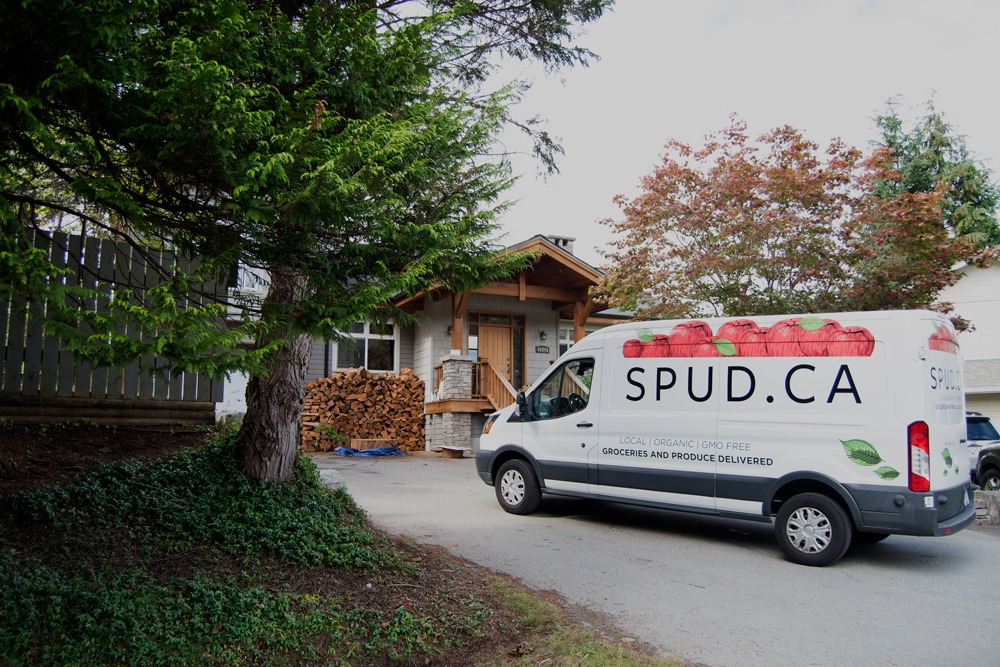Canadian local and organic grocery delivery service SPUD (Sustainable Produce Urban Delivery) has raised pre-IPO funding of C$11 million (US$8.2 million). The financing was led by French growth stage investor CIC Capital Ventures and joined by existing investors, including Canadian investment group Walter Capital Partners.
The funds will be primarily used to advance Food-X Urban Delivery, SPUD’s shared e-commerce grocery delivery platform that allows multiple third-party retailer partners to provide grocery delivery to customers by accessing the necessary technology, warehousing, food preparation, and delivery services. The cost of online fulfillment is decreased through this consolidation—while reducing its environmental impact: SPUD argues its AI-enabled processes result in just 0.5% food waste compared to a grocery store’s 5% to 6%.
“We’ve been delivering groceries for so long we’ve been able to understand the nuances and challenges [grocers] have…I’m really happy that we can share that with other companies,” Food-X and SPUD CEO Peter van Stolk told AgFunderNews.
Opening the first Food-X warehouse facility in August — in Burnaby, British Columbia — helped to push the funding round, which began mid-June, to completion by December. “It really sped up the process; completely changed the game,” said van Stolk.
Typical Food-X consumers are more urban, more educated, and mainly a part of dual-income households, according to van Stolk. “There’s a shifting consumer,” he said. “Would you rather take a yoga class or sit in line at the grocery store? Or would you rather spend another hour with family? People are becoming more selfish with their time and that’s really important.”
SPUD hopes to replicate its proprietary technology and software globally to develop sustainable online grocery ecosystems. More warehouse locations are in the works for 2019 as well. Van Stolk cites CIC Capital Ventures’ relationship with the European market as a strategic move to advance this global expansion.
“Customers care about sustainability, and we are proud to have partners who recognize that our unique platform offers a better, faster and more efficient fresh, healthy grocery delivery solution,” van Stolk wrote in a press release.
On a global scale, Food-X’s main competitor is United Kingdom-based Ocado. However, the online supermarket recently partnered with Kroger while Food-X partners with multiple grocers to provide shared resources. Ocado is a larger company, but SPUD has the advantage of working within North America for many years, van Stolk says: “We’ve been able to create a model that works in different temperature zones.”
“We’ve created technology that’s allowed us to take those orders and, with our AI, make it easy for the retailers to pack and deliver these groceries at a very fraction of the cost that our competitors do it.”
Food-X is part of SPUD’s food business ecosystem that consists of online retail, community retail locations, commissary and food preparation services, and distribution. Founded in 1997 in Vancouver, SPUD employs more than 700 people across all its markets. Van Stolk describes the team as young and aggressive, and they maintain a strong commitment to sustainability and reducing food waste.
“Our processes allow us to have a half a percent food waste. A grocery store has 5% to 6% percent,” he says. And worldwide, if food waste were a country it would be the third-largest emitter of greenhouse gases. “Something that we can do to help reduce climate change is to reduce food waste.”
But reducing environmental impact also puts dollars towards companies’ bottom lines. “We can help these companies make more money by diverting less food into landfills and wasting less food,” van Stolk says of the Food-X model, referencing its partnership with Walmart.
In the future, van Stolk aims to be a plastic-free operation. SPUD, which has a team focusing solely on sustainability, won the Canadian Innovation Showcase in November for their reusable takeout containers. “If I can show grocery stores how to reduce plastic, well that’s a massive solution to a problem,” says van Stolk. “We ask our clients what their problems are, then solve it.”





